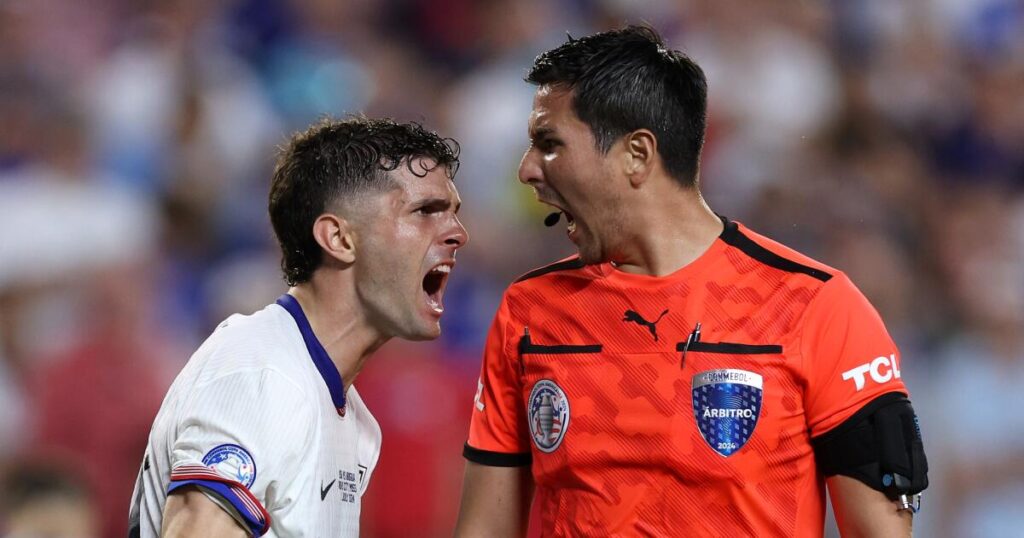
UPDATE: Controversial calls in soccer are reaching a boiling point as players express their frustrations more openly than ever. Recent incidents, including a heated exchange following a World Cup qualifier on July 29, 2023, between Indonesia and Iraq, have spotlighted the ongoing debate over referee authority in the sport.
In a dramatic scene after Indonesia’s narrow 1-0 loss, players surrounded referee Ma Ning to contest critical decisions made during the match. Despite their protests, Ning issued three red cards, underscoring the tension that frequently accompanies disputed calls in soccer. This incident reflects a long-standing tradition in soccer where player dissent is tolerated, unlike in other major U.S. sports.
Referees, including veteran official Christina Unkel, who became one of the youngest FIFA referees at 25, acknowledge the unique challenges they face. “Referees know they don’t always get it right, but if they changed every call due to protest, chaos would ensue,” she stated. The fluid nature of soccer, where every foul interrupts the game’s rhythm, exacerbates the likelihood of disputes.
Players like Aaron Long, a defender and World Cup veteran, emphasize the importance of respectful communication with referees. “As long as there’s a healthy respect both ways, arguing your case is part of the game,” he said. Long believes that the momentum of the game influences how players approach officials, explaining that home-field advantage can sway a referee’s decisions.
The historical context of referee authority in soccer adds layers to this issue. Initially, disputes were resolved among team captains without neutral officials until the rules formally established a single referee in 1891. This shift transformed the game, but many calls remain subjective, leading to ongoing arguments on the pitch.
Unkel also notes that effective communication can make a difference. “Players who express concerns professionally are often heard better than those who constantly argue,” she explained. She cited Becky Sauerbrunn, a former captain of the U.S. women’s national team, as an example of a player who approached referees with respect, enhancing her credibility.
The emotional toll of these disputes on players cannot be overlooked. Frustration often boils over, leading to incidents like the one involving Ma Ning, where a team official was shown a red card for pushing the referee. Such actions highlight the delicate balance between competitive spirit and sportsmanship in soccer.
As officials and players navigate this complex landscape, the conversation about referee authority and player conduct continues to evolve. With the World Cup approaching, all eyes will be on how these dynamics unfold on the global stage.
What’s Next: Fans and players alike are watching closely as the upcoming matches unfold. Will the trend of open dissent against referees lead to stricter enforcement of rules, or will it become an accepted part of the game? The debate is far from over, and as the soccer season progresses, the implications for referees and players will be significant.
Stay tuned for more updates on this developing story. Soccer’s passionate community is sure to keep the conversation alive as emotions run high on the pitch.





